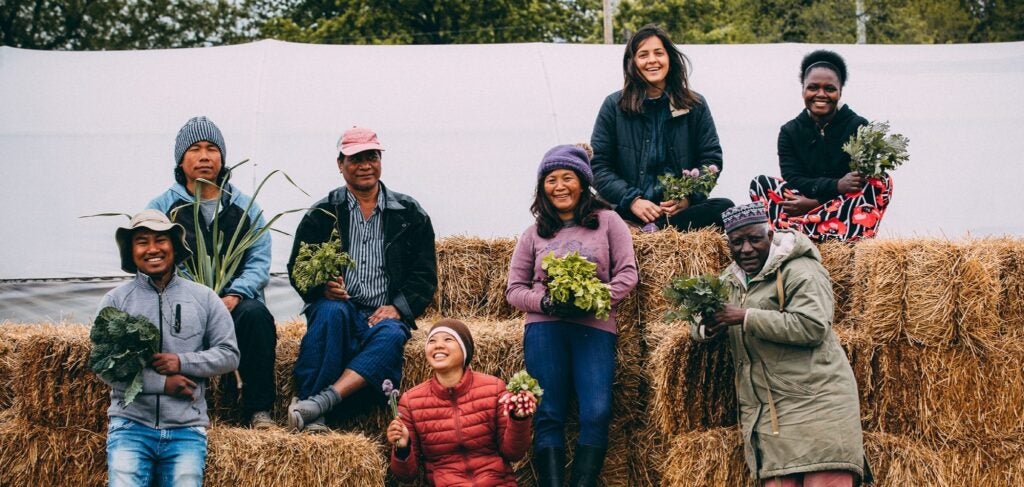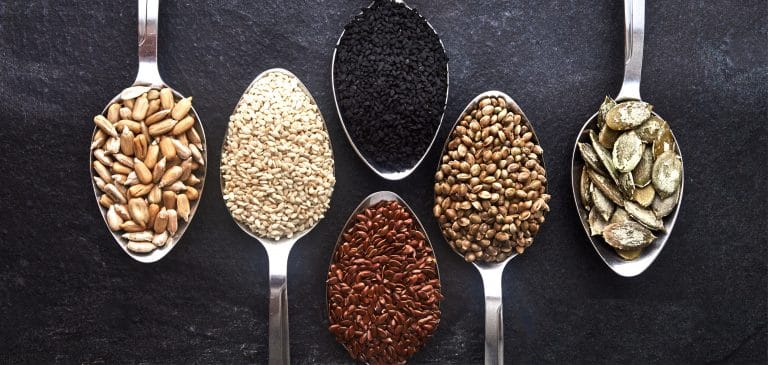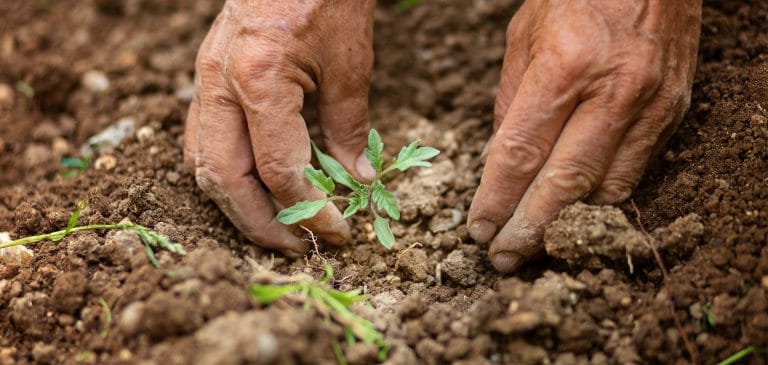
Hope takes root: One company’s generous response to Laudato si’ Challenge

By Daria Earley, Family Strengthening Associate, AmeriCorps VISTA
50,000 refugee clients set to benefit from generous seed donation
Five years ago, in his encyclical letter, Laudato si’: On Care for Our Common Home, His Holiness Pope Francis entreated all humans to become better stewards of both one another and our burdened planet. In response to this call, Eric Harr founded the Laudato si’ Challenge (LSC), described by Harr as an effort to create “solutions to the inextricably-linked global challenges of climate change and forced displacement.” LSC’s Commitments to Impact are specific, measurable, and time-bound impact initiatives designed with partners in the private and public sector.
One of the 2020 Commitments to Impact is from the W. Atlee Burpee Company. The chairman, George Ball, with the help of friend and philanthropic advisor, Santiago Navarro-Monzo, pledged to provide seeds to 50,000 migrant and refugee families by the end of 2020. This “Roots of Hope” initiative consisted of 1,250 pounds of seed kits containing seeds of 11 vegetables and one flower. Each pouch of seeds provides enough food for a family for an entire year.

Originally destined to be donated to relief agencies around the Mediterranean and in the Middle East, the plan was reimagined in a more local way due to the outbreak of COVID-19. Through the referral of International Catholic Migration Commission, Catholic Charities USA (CCUSA) was approached to accept this generous donation and distribute 50 boxes of seeds across the country.
CCUSA worked with Migration and Refugee Services at the U.S. Conference of Catholic Bishops to identify Catholic Charities agencies that had existing refugee-oriented agricultural and farming programs. After identification, CCUSA’s Immigration and Refugee Services staff reached out to these refugee programs to assess their interest and ability to use the seeds. Fifty boxes of seeds were distributed among nine Catholic Charities agencies in Alaska, Florida, Ohio, Kansas, Texas, Indiana, and California.
The seeds were shipped with the assistance of Flexport, a freight forwarding company. Recognizing the important positive impact of the seeds for refugees during a time of increased food and economic insecurity, Flexport agreed to cover the approximately $2,500 cost of shipping the boxes to their destinations across the country.
The refugee agriculture programs across the Catholic Charities network will use the donations from the Burpee Seeds company to develop economic safety nets, increase access to quality produce, and facilitate community during the COVID-19 pandemic. The seeds will be used in a variety of settings, including community, church and home gardens as well as in farming businesses and cooperatives.
Keenan Plate, the Refugee Agriculture Program Coordinator at Catholic Social Services, Anchorage, said the seeds will help refugees’ income as well. “Money earned from produce sales gets distributed back to the gardeners based on how many hours they worked,” said Plate. One of their farms also serves as a small business incubator that has helped to establish eight businesses owned and operated by refugees.

At Catholic Charities of Northeast Kansas, the seeds will be used in a similar fashion. Meredith Walrafen, the New Roots for Refugees Program Manager, said the seeds will help their organization continue an important farming program. “New Roots has worked with refugee families over four years to develop their agriculture skills and build a successful farm business in the Kansas City metro area.” These farming initiatives help create more economic security for the vulnerable refugee population facing even taller hurdles to joining the current emaciated job market.
In addition to economic benefits, the gardens planted serve as “major gathering places for the refugee community,” notes Paula Torisk, senior director of Refugee Resettlement Services at Catholic Charities Archdiocese of San Antonio. There are currently precious few activities that can incorporate social distancing, critical time with nature, and adequate ventilation. Torisk said the San Antonio gardens “provide a safe, familiar space where the refugee community can come together, grow their food and do something many are already familiar with: farm.”
At the close of Laudato si’, Pope Francis writes, “May our struggles and our concern for this planet never take away the joy of our hope.” This year has proven to be especially challenging for those in search of hopeful moments. Yet despite the events of recent months, there are those who continue to answer the call of helping our neighbors and our home: from the Laudato si’ Challenge founders, to the W. Atlee Burpee Company, to Flexport, and the Catholic Charities agencies working tirelessly to support refugees and sustainability.
The coming season will see Burpee seeds enter the soil, yet what will sprout for so many refugees across the country will be hope.








